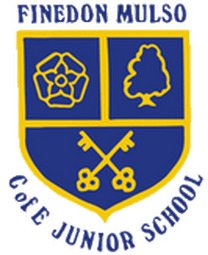Science
Science
‘Science is a way of thinking much more than it is a body of knowledge.’ Carl Sagan.
We grow in science because:
The science curriculum is of utmost importance at Irthlingborough Junior School as it plays a crucial role in shaping young minds, fostering intellectual curiosity, and laying the foundation for future learning. The science curriculum holds immense significance for academic development as it encourages children to think critically, ask questions and develop logical reasoning; it exposes students to real-life challenges, teaching them how to approach problems methodically and allowing them to apply and transfer skills across different aspects of their daily life; early exposure to science can ignite an interest in STEM (science, technology, engineering and mathematic) fields, providing a foundation for future studies and potential careers. The science curriculum often includes topics related to the environment, eco-systems and sustainability which is currently a significant concern globally and an area that will be an important focus for future generations as they choose and enter future professions. In our current climate, this also helps to cultivate a sense of responsibility towards the planet and promotes these values among our children.
Our science curriculum supports individual liberty as inquiry promotes personal freedom by encouraging curiosity, creativity, and the pursuit of knowledge. Scientists are free to explore and challenge existing ideas, fostering intellectual autonomy and have the liberty to access information and make informed choices. Additionally, our science curriculum works in line with our PSHE curriculum. Science, particularly biology, plays a crucial role within PSHE where our children learn about the human body, nutrition, hygiene, and the importance of a healthy lifestyle. This knowledge contributes to a comprehensive understanding of physical health, helping our children to make informed decisions about their well-being.
In conclusion, the science curriculum in Irthlingborough Junior school is essential for nurturing well-rounded individuals, encouraging a scientific mindset, and contributing to the development of informed and engaged citizens.
We grow in science by:
- Developing scientific knowledge and conceptual understanding through the specific disciplines of biology, chemistry, and physics.
- Developing an understanding of the nature, processes, and methods of science through different types of science enquiries that help them to answer scientific questions about the world around them.
- Becoming equipped with the scientific knowledge required to understand the uses and implications of science, today and for the future.
Science at Irthlingborough Junior schools allows the development of multiple subject-specific skills. Through enquiry- based learning science encourages individuals to think critically, take careful observations of the world which include drawing conclusions based on evidence, analyse and make sense of complex phenomena, problem solve which gives children the opportunity to approach challenges systematically and promotes the use and understanding of scientific literacy.
We grow in science when:
To ensure that the intent of our curriculum is fulfilled, science is taught through interleaving and retrieval. This allows our children to gain a coherent understanding of all the topics by linking, practicing, and repeating key knowledge. Science is also implemented effectively since our staff have strong subject knowledge, allowing them to discuss concepts, assess pupils’ understanding and address misconceptions accurately. The subject is taught weekly through one-hour sessions. During these sessions, the lessons start with recap questions which supports the children to retrieve information from passed learning of the different topics. The main body of our lessons are based on the Grammarsaurus scheme where children have the opportunity to learn new scientific concepts through the enquiry skills.
Our curriculum is designed to be progressive and sequential, ensuring that students build on their knowledge and skill in a systematic way as they progress through different key stages of education. Our curriculum outlines a clear pathway for the development of scientific understanding, with each stage building upon the foundations laid in the previous stages. Additionally, the curriculum also places a strong emphasis on scientific enquiry where children learn to ask questions, make predictions, conduct experiments, and analyse results. The complexity and sophistication of these enquiry skills progress as students move through the year groups, reflecting a developmental approach.







